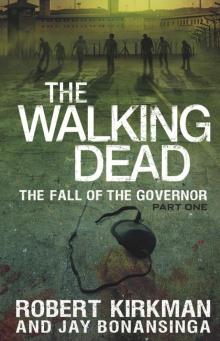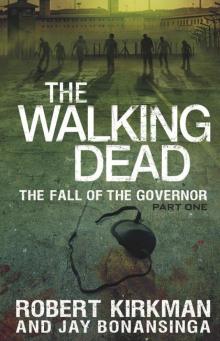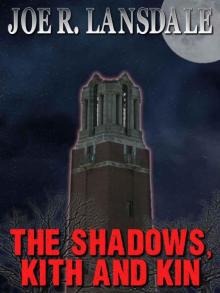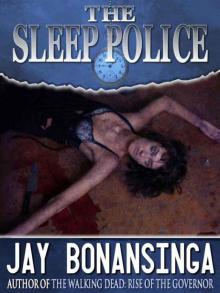- Home
- Jay Bonansinga
Shattered Page 13
Shattered Read online
Page 13
“Over here?” Helen gestured at a swivel chair next to a file cabinet.
“Please.” Reinhardt motioned at the chair. He was a big, gangly man with receding hair and a taste for collegiate clothes. Tonight he wore an orange and blue silk jacket with the University of Illinois emblazoned on the back. “I’d like to introduce you to Doctor Boeski.”
“Hello, Helen.” The woman rose and came over with her hand extended. She wore her shiny coal-black hair cut short in a 1920s-style pageboy, and sported a shapeless black dress and horn-rim glasses. Her bony hand felt cold to the touch. “Susan Boeski. It’s a pleasure.”
The two women shook hands, and then Helen sat down, nonplussed.
Reinhardt and the skinny doctor scooted their chairs closer so that they were flanking Helen with nurturing, sympathetic looks on their faces, as though they were high school guidance counselors about to dispense some tough love.
“You’re a doctor?” Helen asked the Boeski woman.
“Susan’s a psychotherapist and an MD,” Reinhardt said.
“I know this is a very difficult for you.” Dr. Boeski patted Helen’s knee. “Information is power in these types of situations.”
Helen looked at the doctor, then glanced at Reinhardt. “I’m confused. I’m sorry.”
Reinhardt sat forward. “Mrs. Splet—”
“What type of situation is this?” Helen felt anger turning in her belly. “My husband is missing. Do you have information on his whereabouts?”
A pause, Reinhardt measuring his words. “Actually, no…we don’t know where he is. He could be anywhere.”
“Then shouldn’t we go to the police, and fill out one of those—those missing person reports or whatever?”
Reinhardt glanced at the doctor. “Dr. Boeski? You want to…elaborate?”
The doctor took a deep breath. “Helen, the thing is…” She paused. “May I call you Helen?”
“Sure, sure.”
“The thing is, Helen…I’m breaking the rules by telling you this but I’m going to anyway…your husband’s been a patient of mine for a little over a year now.”
An awkward moment of silence as the doctor let this sink in. Helen stared at the psychiatrist. The anger stirring in Helen instantly congealed into fear. “What? He never said…he’s been seeing you?”
“Since last January, actually.” The doctor shot a nervous glance at Reinhardt.
Helen felt woozy. “I don’t—I don’t understand. He’s a patient of yours? He’s seeing a psychiatrist?”
“Helen, I need to ask you something.”
“Go ahead.”
“Are you familiar with the phrase ‘doctor-patient privilege’?”
Helen felt as though she were floating. She began wringing her hands, squeezing so tightly her knuckles began to whiten. “Not really…I’ve heard it before…but I never really knew what it meant.”
“It means that what I’m about to tell you is completely confidential.”
“I would never—”
“I realize you’re his wife,” the doctor went on, her jaw set with tension, “and I suppose you have a right to know your husband’s medical issues, but what I am about to tell you is private information, and you must, must, must keep this completely confidential or I will lose my license. And worse than that, I will lose your husband as a patient.”
Helen clenched her fists. “Please tell me—what is going on?”
Reinhardt spoke up then: “Mrs. Splet, take it easy. We’re going to work this out. I promise. We just have to take this one step at a time. Now, the whole reason Doctor Boeski is here is because I followed your husband to her office one night. I followed him to other places, too.”
Helen interrupted: “What are you telling me? What are you saying?”
“Mrs. Splet, your husband is very…ill.” Reinhardt gazed into her eyes. “Mentally we’re talking about here. Mentally ill.”
Helen swallowed a lump in her throat. She refused to cry again. She had already burned out her tear ducts, and besides, as long as she walked with Jesus, she could handle any curveball the world threw at her. “Okay, I’m listening. Please tell me everything. Please don’t leave anything out.” She looked at the doctor. “I can handle it. I can. I need to know what’s going on. He’s my husband.”
Boeski and Reinhardt exchanged another glance. At last the doctor looked at Helen and said, “You feel up to taking a ride across town? There’s something we’d like to show you, something that might help us find your husband.”
That night, two unmarked squad cars sat outside 2215 Cottage Creek Drive, parked single file against the curb. Each car had a pair of occupants—two uniformed officers equipped with 12-gauge shotguns—and each vehicle was connected via satellite to the FBI command post at Quantico. Behind the two-story colonial, in the shadows near the tree line, sat a pair of Tactical officers, one on each corner of the property. None of these officers expected further assaults on the house; perps, like lightning, rarely struck the same place twice. Inside the unmarked sedans, where silent men played cards and smoked cigarettes and absently fingered the stocks of their weapons, minds began to wander, thoughts turning to upcoming vacations and worker’s comp for sprained knees, and office politics.
The house at the center of this vigil was mostly dark, a single light burning behind a second-floor window, the sound of someone furiously typing away at a keyboard.
Behind that second-floor window sat a lanky, good-looking black man in khakis and sandals. He sat at a desk, pecking at a laptop. The room was littered with files, photographs, and maps. The typing noises were accompanied by the soft drone of a Dexter Gordon CD. Grove loved the iconic jazz saxophonist’s lazy, round tones—they reminded Grove of summer rains and Sunday mornings—and right now the music was imperative. Grove needed it to concentrate, to clear his head.
The Ripper investigation had mysteriously stalled, despite the recent attack on Grove’s home. Cedric Gliane’s lab people had been testing and scrutinizing the assailant’s clothing for several hours now, but other than isolating the genetic material, there wasn’t much to be learned. “Armed-and-dangerous” bulletins had been sent out—even suggesting the possibility of a fugitive in bag-lady drag—but the shooter had evidently vanished into the hinterlands. And even with the plethora of evidence—including clean DNA sequences off the hair at the Adams County scene, shoe prints, fibers galore, and a psychological profile that was getting big enough to publish in two volumes—the case had simply hiccuped in the eleventh hour.
Agent Menner’s temporary task force had come up with exactly zero likely candidates from area mental institutions, and nothing out of the ordinary on the thousands of rap sheets provided by regional violent crime divisions. Dr. Booth from Iowa City had uncovered not one suspicious ophthalmology student. Nor had the IBI found anything of interest in the network of field offices investigating similar crimes. No parolees, no scumbags with criminal jackets out on bail, no suspicious behavior noted on any police blotters. This was always the central problem with genetic results: Without persons of interest to compare and contrast the DNA samples to, the lab results were essentially about as valuable as the paper they were printed on.
The feeling of stalemate lay in Grove’s belly like jagged glass as he madly searched the VICAP site for anything suspicious, any sign whatsoever of a logical candidate. Deep down he knew the real problem was the nature of outwardly motiveless killers: They were ciphers. Everymen. Shy, withdrawn, introverted nerds. People who blended into the scenery.
Grove pushed himself away from the desk and paced the room. He paced and paced, clenching his fists, concentrating on the Ordinary Person who could do something like this. The Ripper was out there somewhere, the faceless guy in the crowd, the worker bee in the office cubicle, the guy in the fast-food uniform asking if you wanted fries with that. He was out there in the great vast nowhere, waiting for news from a hit man, waiting to hear about another butchered family.
“Shit!�
� Grove stormed out of the room.
The caul was waiting for him out in the kitchen, on the counter.
Grove had put the box in there when he got back from Quantico, having second thoughts about using it. Now Grove opened the end of the shipping box, pulled out the membrane, and unwrapped it. In the low light it looked like a flattened, dried fish. He picked it up and smelled its musty, peppery aroma.
Should he mess with this stuff, this old, old magic from his mother’s world?
He stared and considered, and found himself thinking of that nameless everyman preparing to bring more hell into the world somewhere in the Midwest.
The parking lot behind the boarded-up Piggly Wiggly flickered in the light of a broken vapor lamp. Mayflies swarmed through the aluminum-silver funnel that shone down on the cracked asphalt. An echo of a scream that only moments ago filled the night air now faded away into silence.
The Hillbilly crouched on the north edge of the lot, wiping the blade of his tarnished bowie knife on the hem of his skirt. Still garbed in the ragged pinafore dress of the homeless woman, the Hillbilly rose to one knee and wheezed with exhaustion. His face was streaked in grime and sweat. He was not as young and facile with close-contact killing as he used to be. Killing people hand to hand had gotten to be a labor.
He stared at the fresh kill lying facedown on the pavement a few feet away.
The corpse, still warm and twitching, had been a night watchman who had snuck up on the Hillbilly a few minutes ago, surprising him in the shadows of the deserted lot. The Hillbilly has quickly and decisively slashed the man’s throat, but the ensuing struggle had also taken the Hillbilly by surprise. The dying man had grappled and wrestled and swung wildly at the Hillbilly despite the subsequent strikes of the blade, one to the man’s neck, severing his carotid, another to the femoral artery in his leg. The man dropped after that, but he had bled like a pig due to all the exertion.
Now the Hillbilly watched a pool of blood spreading under the corpse, creeping across the blacktop. In the darkness it was the color of India ink. And for some unknown reason, that shiny puddle of blood made the Hillbilly feel strange, uneasy, edgy.
He looked down at the blood.
He jerked back with a start.
In the dark pool he could see his reflection as clearly as if he were looking in a mirror, and he couldn’t believe what he was seeing. It was a trick. He must be hallucinating. The sight of his contorted reflection made his innards squeeze. His head spun with dizziness.
He was looking at his reflection but it wasn’t his reflection. It wasn’t a gaunt, middle-aged cracker from the hills of Arkansas. It was a reflection of someone else—a doughy, balding man with pale skin.
The face in the puddle, the one staring back at the Hillbilly, was the face of Henry Splet.
TWENTY
“He’s an MPD.”
The dashboard light glowing off her gaunt face, Dr. Susan Boeski spoke in low tones. She sat in the front passenger seat of Reinhardt’s war-battered sedan. The detective was hunched behind the wheel, steering the car up Old Six Mile Road, just north of the wild forest skirting Pickman Creek. Deep black shadows rushed past the windows like ghostly veils unfurling against the sky. It was nearly midnight.
“Highly functional, too, with components of delusional psychosis.” The doctor glanced over her shoulder at the backseat. “Are you familiar with the term MPD, Helen?”
“No, ma’am.” Helen Splet felt like a prisoner being led to the gas chamber. Alone in the backseat, clutching herself as though she might fall apart at any moment, she looked out at the barren landscape. She wanted to die. She wanted to crawl into a hole.
“It means Multiple Personality Disorder.” The psychiatrist looked owlish in the green glow. “It’s quite rare, actually. But we do see it occasionally. And I’ll be honest with you, we still have a lot to learn about this disorder and what makes it tick.”
Helen managed to croak, “You’re telling me my husband is…schizo or something?”
“Not schizo, Helen. Schizophrenia is much more common. The schizophrenic hears voices, has trouble connecting with reality. The MPD, on the other hand, is literally a series of different individuals competing with each other.”
Helen swallowed. “Competing for what?”
“Dominance, control. They’re called alters, as in alter ego. Some alters are dominant, some are submissive. And some are so deeply buried in the patient’s brain they surface only under controlled hypnosis. To me, though, MPD patients are quite heroic. Their brains are amazing corrective mechanisms, fractured early on.”
“What do you mean, ‘fractured early on?’”
“Childhood trauma, usually. The different alters become defense mechanisms. One thing we’ve noticed, though, with functional MPDs—especially those who keep the disease a secret like Henry—is that they have a place they go to when they feel a ‘switch’ coming on. It’s the locus convertere. The place of change. Sometimes it’s a secure room in their house, an attic, somewhere private. Henry has a place like that. Way out in the country. It isn’t foolproof. Sometimes he experiences blackouts. Wakes up someplace unfamiliar. But most of the time he keeps his transformations hidden inside this one location.”
After a lengthy pause Helen said very softly, “That’s where you’re taking me, isn’t it?”
Boeski shot a glance at Reinhardt.
“Almost there,” he murmured.
Boeski looked at Helen. “About a year ago your husband came to me for something very straightforward. He couldn’t sleep. Nightmares. He wanted a quick fix. We tried hypnosis, and it was during one of those sessions that another personality tried to come out.”
Helen made a moaning sound.
The doctor went on: “I haven’t even told him yet. It’s very delicate, introducing the dominant personality to his alters. I was about to tell him when he disappeared.”
Helen looked at the back of the doctor’s impeccably groomed head. “You’re telling me he doesn’t even know?”
Boeski nodded. “It’s a process, a very delicate process. That’s why we want you to take a look at this place. Maybe give us some insight.”
Reinhardt took a left turn at an unmarked farm road. The lack of streetlights instantly plunged them into darkness. On either side of them, as far as the eye could see, stretched vast landfills and fallow cornfields. “It’s right up here, around this corner.”
Chills crawled up Helen’s spine as they rounded a bend and the building came into view.
The barn rose in the murky middle distance like a ghostly monolith, its warped siding and rotten roof gable silhouetted against the black sky, the sole manmade structure for miles. It sat back from the dirt road on about half an acre of scrub grass and weeds, surrounded by a broken-down barbed-wire fence. In the darkness it looked like a rheumatoid beast, slumped and sagging.
A sign posted near the dangling, broken gate—once printed with UNITED STATES IMPLEMENT AND TRACTOR—was now so sun-faded only these letters remained:
U ST E I T
Reinhardt pulled up to the gate, put the sedan in park, and got out.
Helen watched from the backseat, chewing her cuticles, as the private investigator shoved the gate open, then climbed back in to the car and carefully pulled into the weed-whiskered gravel lot. Tires crunched, the roar of crickets coming through Reinhardt’s open window. They parked in front of the barn and Reinhardt turned the engine off.
The silence hummed in Helen’s ears, raising gooseflesh on her arms. She glanced out the window to her right. “Oh my God, there’s his car!”
In the darkness to the west, the SUV was canted across a bald patch of earth under a mammoth oak tree. The satellite dish on the roof, the road cases in back, the WJID decal prominently visible on the driver’s door.
“Been there since Tuesday,” Reinhardt said as he climbed out of the sedan with a groan.
“It’s okay, Helen, no reason to be afraid.” Dr. Boeski unbuckled her seat belt, th
en got out. “It’s possible your husband hallucinates when he’s here, sees this place as some significant milestone from his past.”
Helen Splet reluctantly opened her door and stepped out into the night air on wobbly legs.
She followed them across broken glass to the double door. Upon closer inspection Helen could see that the barn was padlocked. A rusty Yale lock secured the ancient latch. She felt faint, standing there, shivering, staring at the padlock. “You’re saying Henry comes here and…changes personalities?”
“At first I didn’t even believe it myself.” Reinhardt stood behind her and lit a cigarette, the tip glowing in the darkness. “He goes in, futzes around, comes out a different person, different clothes sometimes. Once I saw him come out dressed in a nurse’s outfit.”
“That’s enough, Ray,” Boeski said. “Helen, I have to ask you a question.”
Helen Splet was on the verge of tears. “I don’t think this is a good idea.”
Boeski put a hand on Helen’s shoulder. “Helen, did Henry ever tell you much about his childhood?”
Helen shook her head. “I don’t know. Some.”
“Did he ever tell you about a bad thing that happened to him at one of those self-storage places?”
A tortured pause, Helen trying to remember. “His foster father was…not a nice man. He got physical with Henry.” She thought about it some more, wiping her eyes, looking at that forlorn building in front of her. “Never told me anything about a storage place, though.”
“The reason I ask is—”
The doctor abruptly fell silent. A noise had come from the other side of the barn, the faint crunch of gravel, then silence. Reinhardt wheeled around, then became very still.
Helen listened. “What was that?”
Dr. Boeski shrugged, trying to appear calm, but her eyes burned with nervous tension. Reinhardt cocked his head and listened. It sounded as though something was skittering around inside the barn. A raccoon? Mice maybe. Maybe…

 The Walking Dead: The Road to Woodbury
The Walking Dead: The Road to Woodbury Just Another Day at the Office
Just Another Day at the Office The Fall of the Governor: Part One
The Fall of the Governor: Part One The Walking Dead: The Fall of the Governor: Part Two
The Walking Dead: The Fall of the Governor: Part Two Search and Destroy
Search and Destroy Invasion
Invasion The Fall of the Governor: Part Two
The Fall of the Governor: Part Two The Walking Dead Collection
The Walking Dead Collection The Walking Dead
The Walking Dead Descent
Descent The Walking Dead: Return to Woodbury
The Walking Dead: Return to Woodbury The Killer's Game
The Killer's Game Frozen
Frozen Shattered
Shattered The Sleep Police
The Sleep Police Perfect Victim
Perfect Victim